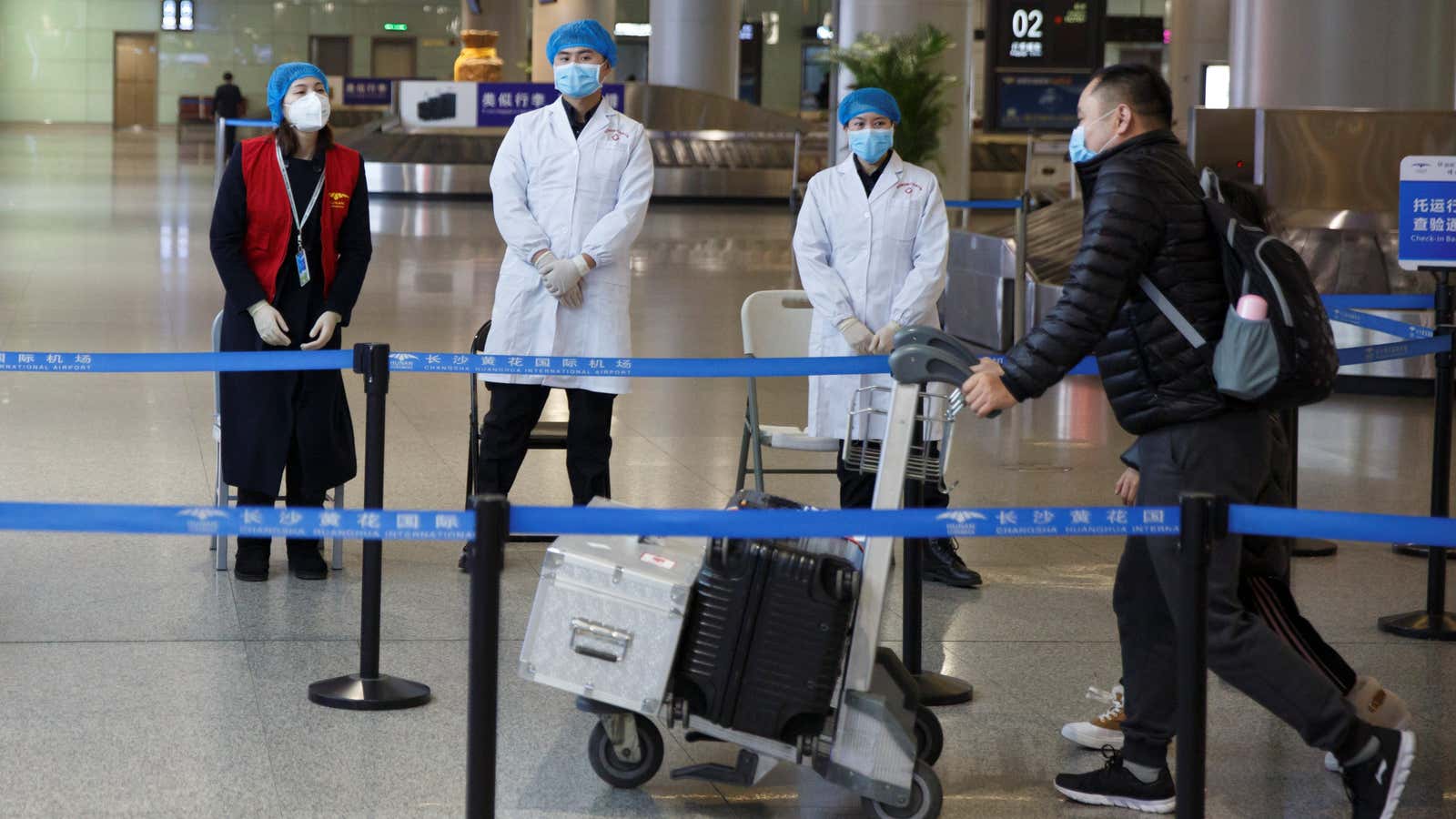A Kenya Airways passenger who arrived in Nairobi on Tuesday (Jan.28) afternoon on a flight from Guangzhou displaying flu-like symptoms is the first suspected case of the Wuhan originating coronavirus in East Africa. The patient is currently being quarantined at Kenyatta National Hospital in Nairobi.
This comes after the Chinese Embassy in Kenya issued a press release saying it is “closely monitoring…the entry of Chinese into Kenya” with the Chinese community, reiterating measures being taken in China to prevent the spread of the virus.
Kenya’s potential coronavirus case, along with that of a 34-year old student who arrived on a flight from Beijing to the Ivory Coast last Sunday, highlights the pressing need for African governments to take preventative measures against the spread of the deadly virus. With an average of eight direct flights between China and African nations per day, the African continent is especially vulnerable.
Ethiopia, a country with increasingly close ties to China, is also screening flights from countries with proven cases of coronavirus contraction. The BBC reported up to four people suspected to have virus have been put in isolation in Addis Ababa. Three of the people were students from universities in the Wuhan area. Two fever testing areas have been constructed at Bole International Airport and two hospitals in Addis Ababa remain on standby for potential cases.
Kenyan port authorities began increasing surveillance at all ports of entry and measuring passenger body temperatures as early as last week. According to Kenya Airways the standing procedure is that passengers are “…required to undergo quarantine screening by the health authorities before being cleared to board any aircraft”.
Nigeria also took preemptive steps early on by implementing “exit screening measures” for passengers entering the country from Wuhan and mobilizing a task force through the Nigeria Center for Disease Control (NCDC) aimed at “assessing and managing the risk of importation to Nigeria”.
While prevention and fever checks upon entry is an essential first step, it may not be enough. Despite measures set in place, the Kenya Airways passenger was screened and cleared by China Port health authorities at the Guangzhou Baiyun International Airport and cleared for boarding.
The problem is the coronavirus’ long incubation period. While direct flights from cities in China to major hubs in East and West Africa range from anywhere from 12 hours to13 hours, coronavirus symptoms can appear anywhere between two to 14 days after exposure, according to the US government’s Center for Disease Control (CDC). In African regions where borders are porous and passengers hop on short flights between countries for business and travel, a unified response to containing the coronavirus’ spread is key.
When Ebola broke out in West Africa in early 2014, “untracked contacts across borders” curtailed efforts towards to contain the disease despite early intervention by local governments and the World Health Organization (WHO).
With the fallout from Ebola serving as a powerful lesson, the WHO has been coordinating with officials in Africa since news of the virus’ spread hit.
In addition to working closely with health authorities to set protocols and implement emergency preparedness procedures, the WHO has “sent guidance to all ministers in the Africa region to highlight issues that they have to deal with,” said Micheal Yao, Africa program manager for emergency response at WHO.
As Lunar New Year (one of China’s biggest holidays for travel) nears to an end, and Chinese nationals that call countries in Africa home return from affected regions, governments may face increasing pressure to regulate the virus’ spread.
Over the past decade, an estimated one million Chinese workers have come to call countries in Africa home. Mauritius, an African country with such a high Chinese immigrant population that it was the first African country name Lunar New Year an official holiday, has become a popular destination for Chinese tourists in Africa. Last Friday, the island nation announced a mandatory quarantine on all passengers (irrespective of nationality) who have visited the city of Wuhan or Hubei province over the past 14 days..
Sign up to the Quartz Africa Weekly Brief here for news and analysis on African business, tech and innovation in your inbox
